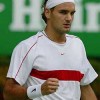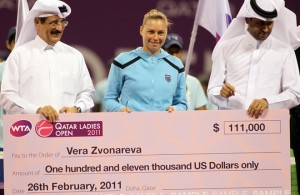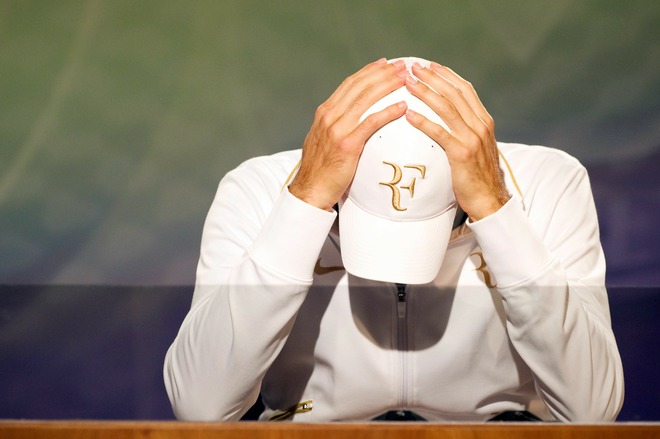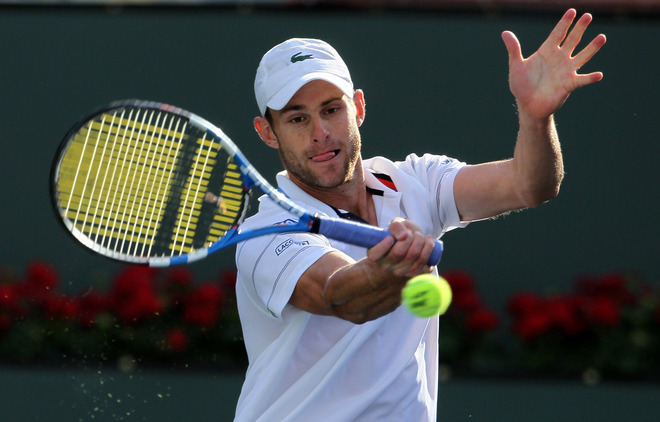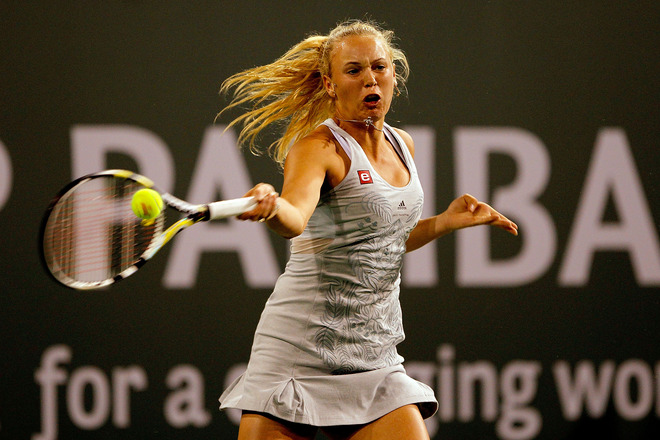On June 25, 2002, Roger Federer, tagged as a pre-tournament dark horse favorite to win Wimbledon just one year removed from his stunning round of 16 upset of seven-time champion Pete Sampras, was bounced in the event’s opening round by 18-year-old Croatian qualifier Mario Ancic by a 6-3, 7-6 (2), 6-3 margin.
Said the No. 154-ranked Ancic of the win over the No. 7-seed Federer at the time, “I came first time to play Centre, Wimbledon, they put me on Centre Court for my first time. I qualified, nothing to lose, I was just confidence. I knew I could play. I believe in myself and just go out there and try to do my best. Just I didn’t care who did I play. Doesn’t matter…I knew him (Federer) from TV. I knew already how is he playing. I don’t know that he knew how I was playing, but that was my advantage. And yeah, I didn’t have any tactics, just I was enjoying.”
Following the loss, Federer went on to win his next 40 matches at Wimbledon – including five straight titles – before losing in the 2008 final to Rafael Nadal of Spain. He has not lost in the first round of any major since.
Rene Stauffer, in his book ROGER FEDERER: QUEST FOR PERFECTION ($19.95, New Chapter Press, www.RogerFedererBook.com) takes readers back to Federer’s most infamous first-round loss in this book excerpt below.
In the first round at Wimbledon, Federer drew Croatian teenager Mario Ancic. Federer had no idea who he was and didn’t find out much about him before their match. Prior to the 2002 Wimbledon Championships, the 18-year-old Ancic primarily played junior events and only advanced into the Wimbledon main draw through the qualifying tournament. He was ranked No. 154 in the world and stood at nearly six feet, six inches tall. The 2001 Wimbledon Champion Goran Ivanisevic, who like Ancic hailed from the Croatian coastal city of Split, even gave his young countryman tips on how to play Federer. Wimbledon was Ancic’s Grand Slam tournament debut and his first match was played on Centre Court of all places, against Federer, the man who one year earlier defeated one of Wimbledon’s greatest champions on the very same court.
Roger’s father Robert, who seldom watched his son play live, traveled to Wimbledon to watch his son. Sitting in the bleachers at Centre Court, he anticipated peacefully watching a routine first-round victory for his son on this pleasant, warm and dry afternoon. He couldn’t believe his eyes. Like in Paris, Roger unceremoniously lost in the tournament’s opening round without winning a set. He was unrecognizable compared to the previous year’s heroics and only scored one ace against the young Ancic in the 6-3, 7-6 (2), 6-3 loss. Federer was shocked. As in Paris, he couldn’t understand why he played so poorly. “I normally like to compliment young players,” he said, “but the way I performed today, I can’t really judge Ancic.” Federer was forced to witness the top-ranked Hewitt, who was not considered to be a grass court specialist, go on to beat David Nalbandian in the final to become the first Australian Wimbledon champion since Pat Cash in 1987.
By contrast, Federer dropped out of the top 10 by virtue of his Wimbledon performance. Two weeks later at the Swiss Open in Gstaad, Federer experienced another unexpected defeat at the hands of Radek Stepanek of the Czech Republic in the second round. His crisis was incomprehensible. “He’s not himself on the court anymore,” said (Federer coach Peter) Lundgren. “Technically, there’s nothing wrong with his game. It’s in his head. He feels the pressure.” For the moment, Federer lost his entire creativity, his entire joy in playing tennis and his self-confidence. “I allowed myself to become too dragged down mentally and I thought I couldn’t play tennis anymore,” he said later. But his greatest setback still lay before him and it would come from a completely unexpected direction.
